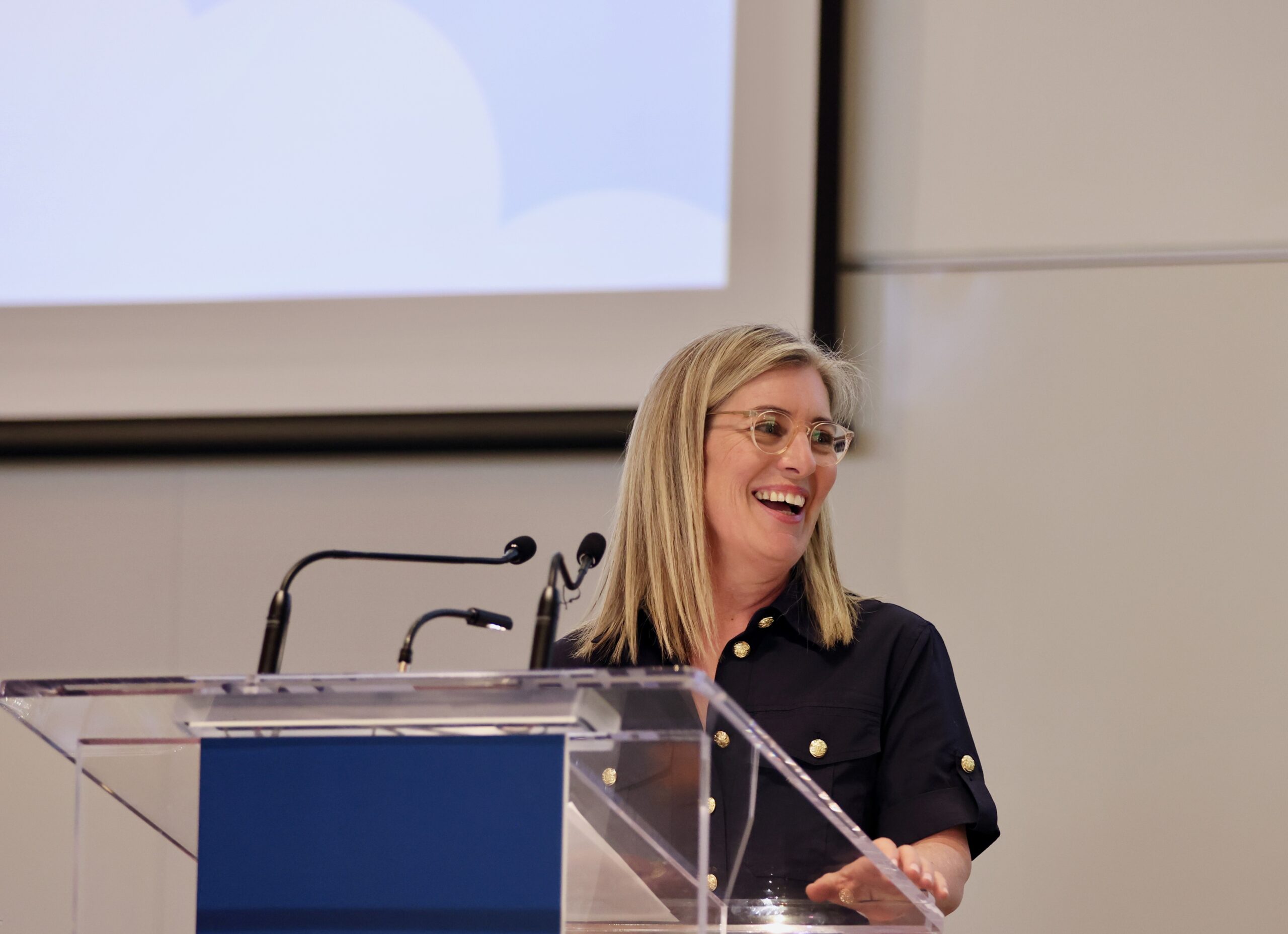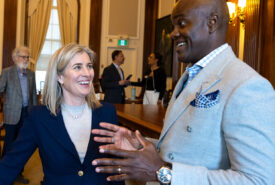Thank you, Professor Mundy, for that kind introduction. I would like to take this opportunity to thank you for your great work as Associate Dean. I offer you my best wishes as you prepare to take on the presidency of the Comparative and International Education Society.
I would like to extend special greetings to my fellow speakers, the Honourable Liz Sandals, Ontario’s Minister of Education, and Professor Gilbert Valverde, President of CIES.
Greetings also to Professor Julia O’Sullivan, Dean of the Ontario Institute for Studies in Education – or, OISE – at U of T. Thank you, Professor O’Sullivan, for your outstanding leadership.
Ladies and gentlemen, welcome to Toronto! We are absolutely delighted that you have joined us.
Over the next few days the world’s leading authorities on education will address a theme of great importance – “Revisioning Education for All”. It is a marvellous opportunity for all of us to share our experience and expertise, and to move forward together in realizing this goal.
This is the largest-ever meeting of CIES, with delegates from around the world, and representatives of international organizations, foundations, NGOs, and ministries of education, and of course the world’s leading faculties of education. And I am pleased to note that many of these organizations are key partners with OISE and U of T.
Ladies and gentlemen, to provide some context from my perspective, I would like to offer you a few highlights of U of T’s commitment to “education for all”. The ethos of the University of Toronto may be understood in two words: excellence and accessibility.
U of T has taken its place as one of the world’s great public universities – indeed one of the world’s great universities, full stop. At the same time, we are a large, accessible, urban university, deeply embedded in the economic and social fabric of the Greater Toronto Area. U of T is truly a portal of opportunity for thousands of undergraduates – one in five of whom is first-in-family to attend university.
We are strongly committed to ensuring that all qualified students can enter and remain at U of T, regardless of their personal financial means. In fact, the University’s Governing Council made a formal commitment to that principle in 1998. It has since been adopted by our sister institutions in the province, and is now mandatory under the Ontario government’s Student Access Guarantee.
But the ethos of accessibility extends much farther back in our history. One of the most outstanding citizens of the U of T community, The Honourable Bill Davis, is an alumnus of the University and a very distinguished former Premier of Ontario.
As Minister of Education in the 1960s, he established Ontario’s system of community colleges, a remarkably progressive innovation from which we continue to benefit today. And he launched what is now our world-renowned faculty of education, the Ontario Institute for Studies in Education.
Since then OISE itself has made tremendous contributions in education research, training, and policy – and not least in the promotion of access to education. Among other things, it has had a profound influence on Early Childhood Education policy in Ontario and beyond. And it is the home of U of T’s newly-established Fraser Mustard Institute for Human Development.
Ladies and gentlemen, we are proud of our commitment to accessibility. But I believe you will agree that our vision of accessibility must not be limited to the policies of one university, or even one country. The principles of social justice also require a global focus; and so international collaboration is absolutely crucial in the advancement of “education for all”. As you know, universal primary education is one of the UN’s Millennium Development Goals, and access to education figures prominently in another MDG – to promote gender equality and to empower women.
Education is fundamental to individual and social well-being and progress. But as the UN has correctly perceived, it is truly a global project. We see it in every aspect of our experience at U of T. Forty-three per cent of U of T’s co-authored research papers involve collaboration with researchers outside of Canada. Over the past few years, our international faculty hiring has accounted for roughly one-half of all our academic hiring. And fully 20 per cent of our first-entry intake this year was comprised of international students.
This is set within a local context in which 50 per cent of the population of the Toronto city-region were born outside of Canada.This wonderful diversity is a huge source of strength for the University of Toronto. It is crucial in helping us achieve our goals of helping prepare global citizens and meet global challenges. And it impresses on us how important it is that we listen, learn, and contribute, as part of a truly global conversation.
As U of T professor Marshall McLuhan famously said, the modern world is an interdependent, “global village”. That is why a gathering such as this one is so important for all of us – and why we are so grateful and excited that you are here.
In closing, I think that when we look at the scale and complexity of the challenges we face, it is understandable that we may at times feel overwhelmed. But when we look around us, we are inspired. There is enormous brain power in this room, and a world of good will, too. That bodes well for this conference, and for the advancement of our common goals in “revisioning education for all”.
On behalf of the University of Toronto, I wish you well in your deliberations over the next few days.


